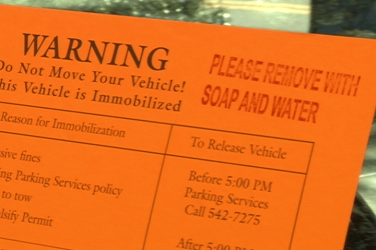ATHENS — Words can hurt people, or they can empower them. Grady Newsource reporter Kendall Trammell found out why it’s difficult to change the English language and remove words that do more harm than good.
The reason it’s tough to change a word is because once a word is used frequently, its power grows. It takes people who aren’t directly affected by the words to start the change.
University of Georgia linguistics professor Chad Howe said the power of words can even spark national movements to change language — like Spread the Word to End the Word Day.
Jessie Hauser is a member of Special Olympics at UGA. Hauser said people shouldn’t use the word “retarded” no matter the context.
“It’s creating a stereotype, and it’s impacting people without directly saying it to anybody,” Hauser said.
Special Olympics member Bergen Aughey agreed.
“It’s putting a label on a group of people,” she said, “Unfortunately, it’s a word that was socially acceptable to use many decades ago, but it’s something that needs to change socially.”
Students took pledges and signed their names on Wednesday in honor of National End the “R” Word Day. Connor Gruver was one of the 200 people who came out to Tate Plaza to be a part of that change.
“I think using the R-word is something subconsciously some people do,” he said. “I remember I did it when I was a kid a lot because it’s easy and everyone else is doing it. I never really thought about what it meant and the effect it can have on people.”
Howe said once people understand that a word is inappropriate, these pledges can have a bigger effect. Signatures are easy. Getting the word to disappear for ever — not so much.
“It will not go away instantly,” he said. “There are different ways of thinking about this. Words don’t have power on their own. They only mean things because people use them.”







